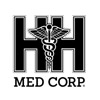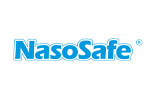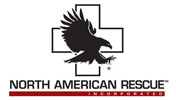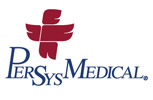FIRST AID IN DISRUPTED SITUATIONS – FIELD GUIDE
This guide uses the same terminology and the same principle of Technical Sheets (TS) as well as a clear color code with pictograms that will help in the field to make the right decisions for the benefit of the injured in a degraded situation. Organized by zone (red, orange and green), each part of the guide provides the reader with the essential data on the attitude to adopt and brief illustrated technical sheets to take the appropriate action.
An "In the Field" section includes essential tools such as checklists, injury cards, note-taking sheets, and reports to complete.
The whole is designed with multiple cross-references to the linked FTs, relative pages, ordered indexes to make it as practical as possible and quick consultation on the day it is used as a roadmap by the first-aid worker at the scene of the action with the injured person(s).
Its format is designed to be carried everywhere and to fit in a trouser cargo pocket, a bag pocket or in a collective first aid kit.
Resistant paper but not too thick to save weight, rounded corners, colored stripes for quick identification of the different areas of the guide, everything has been thought of to make it a practical and efficient tool with always the same goal: to make the first aider more efficient and thus save more lives.
Who is this guide for ?
It is intended for people who have little or no medical knowledge and for whom caring is not the primary mission, and who wish to acquire the basis of knowledge on first aid in volatile or degraded contexts.
Law enforcement officers, journalists, humanitarian workers, adventurers, CPOs, expatriate workers, security guards, provident citizens, etc.
General presentation
This Field Guide adds a practical dimension to the wealth of knowledge and techniques compiled in the successful book “FIRST AID IN HOSTILE ZONES”. This guide will fast become an indispensable tool for anyone finding themselves having to use first aid in extraordinary contexts.
When a situation suddenly deteriorates (attack, serious injury far from help, traffic pile up, violent incident, industrial or natural disaster, terrorism…) leaving one or more casualties, our ability and capacity to react rapidly decrease.
The aim of this guide is to serve during those critical moments, to remind you how to proceed when the mind is under stress, to indicate how to use equipment or improvise if there is none.In a logical page to page order with a system of codes, references and colours, it guides the user to the ultimate goal; to rescue oneself and others and save one or more lives until relieved by professional rescue services.
In details :
- A 120-page guide in "cargo pocket" format
- All detailed phases from the injury until after the operation
- Essential theoretical reminders
- The 3 intervention zones with gestures, equipment and detailed instructions
- 43 data sheets detailing step-by-step in a sequenced and efficient manner in which to perform the gestures
- 10 summary tables
- 8 arrowed decision trees
- 4 summary checklists
- 240 photos
A set of pictograms, color codes, page references and summaries allowing to use the guide at the head of the injured person as a real checklist according to the situation, the knowledge of the rescuer and the available equipment.
Integration of improvisation concepts for cases where first aid equipment is insufficient or missing
Integration of the fundamentals of Prolonged Field Care (PFC) for the care of injured people who are expected to be in the field for several minutes, several hours or more.
Integration of actions to be taken after an intervention (infection prevention, possible psychological problems to be monitored + 1 self-test PTSD-Post Operational Stress Disorder). In line with the latest recommendations of the TECC (Tactical Emergency Casualty Care Committee)
About the author ?
Former Commando Team Leader, Joël Schuermans is qualified in Paramedical Science and has many operational missions and expeditions under his belt. Medical Director for several organisations, he has a solid experience both in the field and in first aid training for specialised contexts.
Joël Schuermans is the author of the reference book “FIRST AID IN HOSTILE ZONES” as well as several books and many articles on the subject.



